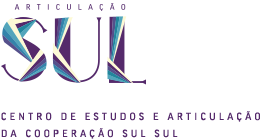Through an independent assessment of the progress made in the Brazil-UNICEF TSSC Programme, the evaluation will seek to generate knowledge of successful strategies to promote SSC, analyze processes, especially with regards to the application of SSC principles, and document results at both output and outcome levels, with consideration to human rights, gender and the vulnerable populations referred to in the context of the MoU. Ultimately, it should be able to identify what works, what doesn’t and what lessons could be replicated.
The Government of Brazil has been actively engaged in South-South Cooperation (SSC) for decades, through bilateral, trilateral and multilateral partnerships with developing and developed countries as well as UN agencies and other international and regional organizations. It considers Trilateral SSC as a modality for International Development Cooperation that complements Bilateral SSC and builds on shared governance among the different actors involved, joint implementation with active participation of all actors throughout the project cycle and identifiable comparative advantages.
UNICEF has joined efforts with the GoB to foster horizontal TSSC partnerships between Brazil and other developing countries.
Through an independent assessment of the progress made in the Brazil-UNICEF TSSC Programme, the evaluation will seek to generate knowledge of successful strategies to promote SSC, analyze processes, especially with regards to the application of SSC principles, and document results at both output and outcome levels, with consideration to human rights, gender and the vulnerable populations referred to in the context of the MoU. Ultimately, it should be able to identify what works, what doesn’t and what lessons could be replicated.
UNICEF Evaluation Database https://www.unicef.org/evaldatabase/index_103869.html ()

